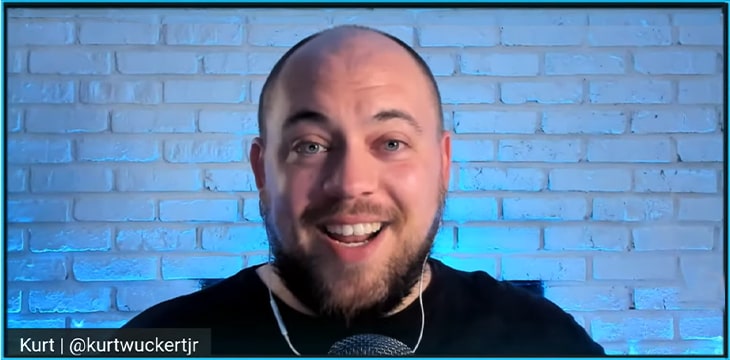|
Getting your Trinity Audio player ready...
|
This week’s episode of the CoinGeek Weekly Livestream sees CoinGeek Chief Historian Kurt Wuckert Jr. engaging viewers with quick-witted discussions on diverse topics that included the most relevant issues at present. CoinGeek’s Becky Liggero also pops in to ask the quirky host to do an impersonation of Peter Griffin—a character from the American television show Family Guy—as to which Kurt happily obliged. It’s definitely not one to miss!
“This is funny, I keep getting people asking me about Dfinity,” Kurt says as he opens a dialogue about the recently launched blockchain created by Andreessen Horowitz, a venture capital firm in Silicon Valley that backs technology entrepreneurs.
“What they’re doing essentially is building a Metanet competitor,” Kurt explains. “Like any Silicon Valley start-up, Dfinity is marketing big time.” Kurt believes Silicon Valley start-ups that ventured into the Bitcoin space tend to go nowhere. He notes that companies like Polkadot and Cardano have one goal in mind: the exit.
“As a rule, Silicon Valley doesn’t really want meat on the bone,” Kurt points out. “They just want you to think there’s meat on the bone to pump valuations.”
The ongoings surrounding Elon Musk was also a point of discussion in this episode of CoinGeek Livestream. In recent weeks, the Tesla and SpaceX CEO has sparked controversy on social media after Tesla stopped accepting BTC as payment for its products, with Musk citing concerns about the rapidly increasing use of fossil fuel for Bitcoin mining. In addition, Musk expressed his intent to increase Dogecoin’s blocksize capacity— a move that was met with criticism coming from the BTC camp. “I kind of understand why he [Musk] likes Doge,” Kurt says. “It’s because Doge didn’t have a development team, there’s no toxic culture that existed around Doge that would give him any resistance.”
The conversation continued to linger around Bitcoin’s ecological impact on Earth. This time shifting focus on Coin Carbon Cap—a list of proof of work [PoW] currencies ranked by energy consumption—a topic Kurt finds extremely important. As he points out, the wastefulness of proof of work in Bitcoin has long been an issue. “In BTC, it is a huge waste of money to burn fossil fuel in order to secure a ledger that does nothing. On the flip side, BSV, with less than one percent of the hash power is capable of ten thousand times the transaction throughput. You can really, truly disrupt Visa and MasterCard… using BSV with very little hash rate.”
Interesting site. The difference will only get more extreme as BSV usage ramps up.
— Shadders (@shadders333) May 16, 2021
Kurt deviates the conversation to offer a political standpoint on the Israeli-Palestinian conflict in correlation to the misalignment of principles and beliefs between big blockers versus small blockers.
“Everybody thinks that they are the most just party and they like to ignore their own faults on both sides while maximizing the problems with the other guy’s argument. This is why we’ve seen 60, 70-something years of war among people that don’t see eye to eye on first principles… just like we big blockers disagree on the first principles of Bitcoin with the small blockers. We use different words. We have different understandings of words. We have different understanding of what is the Genesis block… It’s a big problem.”
Watch the full episode of CoinGeek Weekly Livestream on YouTube to hear more of Kurt’s insights.

 02-03-2026
02-03-2026 




